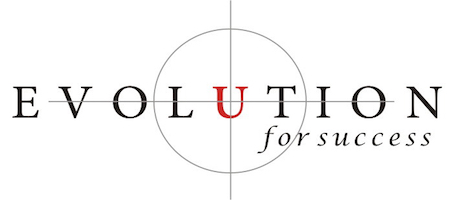Build Unstoppable Confidence: Lead the Troops
 Self-esteem, self-confidence, and self-worth are one of the principles of “self-help” that are constantly spoken, written, and talked about. Let’s take a look at what people really mean when they say they need more of them. What do people really mean when they say, “I need to work on my self-confidence?”
Self-esteem, self-confidence, and self-worth are one of the principles of “self-help” that are constantly spoken, written, and talked about. Let’s take a look at what people really mean when they say they need more of them. What do people really mean when they say, “I need to work on my self-confidence?”
When I hear client tell me they need more self-confidence and self-worth, what I hear them really expressing is that they need a little more self-competence. Confidence is about having the BELIEF, or assurance that something is the way that it is. The word confidence is normally followed by the word, “in…” Most people want more confidence in their own self or in knowing they can perform a task. Who would turn down feeling more confident? Being confident unlocks other empowering emotional states, like courage and boldness that are vital in the pursuit of a worthy goal.
Quick example, let’s say a client wants more self-confidence in speaking to women. In order to be self-confident and to speak to a woman, he has to have spoken to women in the past in such a way that he remembers his successes at it. No past successes equals no feelings of self-confidence. What he really needs to build and develop are the skills to become more competent in speaking to women. When he becomes more competent at speaking to women, naturally, his confidence level will rise. While self-confidence is the BELIEF in the ability to perform a task, competence is built through the PROCESS of taking the actions necessary, suitable or required to complete a task.
We all have the need to grow. Our bodies are muscle machines that are built to take on resistance. Every muscle, fiber and tendon in our body is meant to handle stress and strain. When we take on resistance, we naturally become stronger. We build more muscle, the more we experience resistance. The less resistance we take on, the more we experience atrophy. We become weaker and weaker. People who want more self-confidence are simply not competent at doing something they really want to do.
However, have you seen the person who succeeds and still appears to have a low self-confidence? How does that happen? While developing competence at a task, there is trial and error; sometimes things work and sometimes not. If our hero mentioned above gets the courage to speak to a women ten times, there may be only two attempts that produce a positive result. Building a healthy level of competence comes on focusing and celebrating on the two things out of ten that were done RIGHT. That goes against all human nature. If you got a 97% on a school test, would that be enough, or would you be inclined to search through everything you got right to find that one question you got wrong?
Competence is built by focusing on what you did that was the best, and learn/forget the rest. Most people would never acknowledge the 97% of what was right on the test in their pursuit of finding what they missed. You’ll notice a pattern that all people with low self-confidence can always tell you what they have done incorrect, wrong, or poorly.
Self-confidence is the result of being Competent in a specific task or achievement. Competence is built by accepting challenges in the pursuit of a worthy goal; a person has to be willing to push through resistance to become stronger. As new actions are taken, staying focused on celebrating what is done right, (not wrong), will lay the foundation for competence and ultimately an unshakeable feeling of confidence.
To lead more effectively today:
- Identify specific areas where a person wants to be more self-confident
- Support them to develop a strategy to become more competent
- Focus on catching people “doing things right” (they’re probably focusing on what’s wrong)
- Celebrate competent actions, (they will be uncomfortable doing this, so push through)


